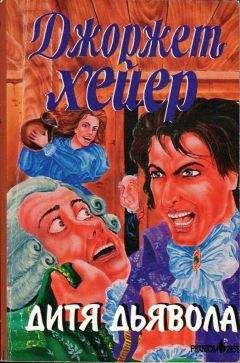Peter Carey - Oscar and Lucinda
And yet he did not really think of "sides," only of trying to adjudicate,
«
205
Montaigne
to assume the responsibility for the harmony of the table. This, really, vvas his great talent. It had made him a good schoolmaster. It was born of his hatred of discord, his fear of loudness. The weakness, therefore, ended up a virtue, and he brought his sense of fairness to every social situation so that he would divide curiosity and attention like a good socialist, dividing them fairly according to the needs of the participants. As for himself, if you left aside the subject of horseracingwhich he imagined he had now abandoned-and the construction of the Leviathan-on which everybody at the table was well versed-he thought he had nothing worth saying on matters secular. He had found his pupils at Mr Colville's school to be more worldly than he was. "And what would you invest in, Miss Leplasrrier?" The question was quite innocent. He did not imagine she was in a position to invest in
anything.
Lucinda Leplastrier put her knife and fork together on her plate, the fork with its tines upwards. She knew her hair was a fright. She could feel it slipping from its clips. Her cheeks were burning but she forced herself to look slowly around the table, to take in every face before she spoke. She had taught herself this trick in Sydney. It was a sea anchor thrown out to slow her before the gale of her emotions, and although she did not actually feel it herself, it gave her an appearance of almost queenly dignity.
"I would invest," she said. She counted to three. She lost her place. "I would put my capital into something that I loved very much." "Very pretty," said Mr Borrodaile, and made a show of applauding. "Perhaps not loved' then, Mr Borrodaile, Let us say that I would invest in something from which I would derive innate pleasure. And if it were land, for instance, I would first find some land which would produce what I wished, and then I would prepare myself for good seasons and bad seasons, but I would cherish my land." "Dear girl. ," Lucinda made a little face which was born in that painful territory
between a wince and a smile.
"But mostly, Mr Hopkins," she said, to Oscar (who leaned forward and thus, although he wished no rudeness, was complicitous in excluding Mr Borrodaile), "I would advise someone with capital in accordance with what I understand the parable of the talents instructs us to. I would advise that they make something that was not there before. I do not like your tallow works, I must admit it, Mr Borrodaile." She returned her attention to him as she spoke. Her voice was soft, even regretful. "And this is not merely because they produce a most
Oscar and Lucinda
unpleasant odour, but because I have lived and worked at farming and I cannot bear to see a beast used for so base a thing, and now I am sure I have allowed you to call me silly and feminine."
"Dear girl, I have thought no such thing." But his hooded bloodshot eyes thought worse things and brought them out, one after the other, and displayed them. It was a private showing and Percy Smith was not aware of it-he smiled at Lucinda and shook his head in such an idiotic and patronizing way that she revised her good opinion of him immediately.
"The principle," said Oscar, inviting them all to join hands in some communion which they were-even Lucinda-now reluctant to approach, "the principle, Mr Borrodaile, is surely a good one."
"Oh, for God's sake," spluttered Mr Borrodaile, then tried to catch his blasphemy before it landed. His mouth, for a second, lay open like someone who has eaten food too hot and wishes to spit it out, expel it, anyway, but cannot do it from politeness. He could not take it back. He could only push on, hack his way forward, and not worry that he could not see where his next step would lead him. "I knew you were a clergyman when I saw you from behind. You see, it's in your walk." He swilled his burgundy.
"By criminee, 111 show you."
Lucinda sucked in her breath. Even Mr Smith accustomed by now to the erratic and energetic movements of his friend, his erupting passions, his hurts, slights, revenges, even Percy Smith, lining up his spoon and fork beside a most unseasonal plum pudding, looked alarmed. Mr Borrodaile was not deterred.
Oscar and Lucinda were both burning red, as if they were parties to an adultery. Mr Borrodaile stood with his back to the mirrored pillar, grinning idiotically. He gave the ends of his moustache a little tweak. He adjusted his shirt cuffs like a baritone about to sing. He was drunk, of course. He composed his face, but his face was not the point. The point was this: Mr Borrodaile would 'do' a walk.
He clasped his big hands together on his breast. He inclined his upper body backwards from the vertical. He sucked in his ruddy cheeks and raised his eyes like a choirboy in procession. He walked. He was a wooden doll with tangled strings. His legs jerked sideways then up. The upper body swung from side to side like the mainmast of a brig at anchor in a swell. The hands unclasped and clasped and then flew apart to grasp at-at what? A butterfly? A hope? A prayer?
Mr Borrodaile perambulated, undulated, swayed and smiled for the
204
Montaigne
entire length of the dining room, weaving daintily where architecture
— dictated.
The purser scraped back his chair and those in second class who had previously complained of Borrodaile's "shenanigans," now looked towards the officer expectantly, but he was not moving back his chair to arrest him, but rather to applaud. Mr Borrodaile was walking exactly like the red-haired clergyman, no, not "exactly." He was not like the chap at all, and yet he had its essence. His walk was to the original as a jiggling skeleton is to a dancing boy. Mr Borrodaile's big dimple-chinned face was red with pleasure. He strode along. He put his head back. He swung his arms. The applause was quickly general.
Oh, what a bully he must have been as a boy, thought Lucinda, seeing this most accurate performance, a performance which, in spite of her resolve to the contrary, made her smile. But she would not applaud it. Its intention was too cruel-to make all that was good and kind in the young man appear to be weak and somehow contemptible. She was ashamed of her smile and was therefore surprised, when she at last allowed herself to look at the subject of this mockery, to see that he was not only smiling broadly, but applauding as enthusiastically as the bullies at the purser's table.
He took her breath away. How confident he must be with himself. She resolved there and then that she would like to know him better.
"Well, well," said Oscar who was not as confident as Lucinda imagined but was, rather, protected by a curious blindness about himself. He could not avoid seeing what was comic and grotesque in Mr Borrodaile's walk, and yet it did not occur to him, not even for an instant, that these might be elements of his own physical self. He would never perceive himself as odd and could only see Mr Borrodaile's mannerisms as theatrical devices intended to convey an inner reality. Thus he saw the clasped hands merely as symbols to represent him as unworldly, the jerky legs as enthusiastic, the idiotic smile as kindly. And he was not displeased. Indeed he was touched that Mr Borrodaile should so readily perceive those qualities in his clay that he had so laboured to strengthen.
"Well, well," he said, leaning back in his chair and cracking his knuckles. 'It would seem we cannot keep our hearts secret from those who observe us keenly." He looked up at Mr Borrodaile who had come to stand, smirking, above his shoulder. "My congratulations, Mr Borrodaile, it is a great gift."
Mr Borrodaile could not help but feel irritated. He leaned forward
Oscar and Lucinda
and "borrowed" the parson's glass of wine and stood there smiling and sipping it without apology.
"A great gift," said Oscar, twisting his long neck so he might speak directly to Mr Borrodaile while, at the same time, avoid the portholes which ran along the wall behind him. "And I do not mean your performance-I am pretty well uneducated in theatrics and cannot judge it." Mr Borrodaile was discomforted. He replaced the parson's wine glass and moved to take up his proper seat and it was then that Oscar caught sight of what he had hirtherto succeeded in avoiding.
The sickening silk sheet of sea made a gagging ball in his throat.
He stopped speaking.
"Not the performance," prompted Mr Smith while Mr Borrodaile, realizing that he was at least being spoken to in a respectful and cornplimentary style, now took his seat politely and leaned forward attentively to hear what his victim had to say.
"I cannot judge it," said Oscar, calming the panic in his gagging throat with a little dry bread.
"But your sensitivity to the inner man, to those parts which we do not readily show the world, indeed which we often take great care to hide-this perspicacity, Mr Borrodaile, it is really admirable.";l
Mr Borrodaile looked very pleased. "i
Lucinda hid her delight in her water glass. »
"This is a gift," said Oscar, leaning forward, gesturing as if to hold a casket of some weight. "It is something which should not be used merely to amuse passengers on a long voyage. It is something a Christian should use in life."
As he spoke, Oscar became bigger and more eccentric than even Mr Borrodaile's impersonation might have allowed. He was, with excitement, embarrassment, a little wine, more of the character that WardleyFish loved, more like the schoolmaster sixty boys from Mr Colville's school would still remember in their dotage. He was animated. His long arms waved across the table, missing burgundy glasses and hock bottles, but only because his fellow diners removed them from the radius of his arms. His voice beame higher and took on the famous fluting tone. He looked from one face to the next, drawing them into the bubbling pot of his enthusiasm until they, too, felt that what they had witnessed was not a cruel mockery but an affirmation, an insight, a thing of much greater moment than they had at first realized. They polished it in retrospect, buffed, varnished it until it shone in their imaginations as a precious thing and its perpetrator-the rude and
7f1A
Phosphorescence (1) contemptuous Mr Borrodaile-was made, at least temporarily, into something fine.
Lucinda, who had begun by thinking Mr Hopkins merely clever, was, when she saw there was no guile in this enthusiasm, so moved by his goodness that her eyes watered. Mr Borrodaile was also moved, but in a different way, and for a little while-half an hour or so-he was a different person. He showed an interest in the feelings and opinions of his fellow passengers. And his eyes, when they looked at Lucinda Leplastrier, no longer showed those cold instruments, like surgeons' tools, that he had displayed so nastily (snapping open the case: There!
See!) so short a time before.
There was phosphorescence beside the ship. It was announced by the head steward, and there was a scramble for the deck where the spectacle could be properly enjoyed and that was how Oscar, not wishing the party to break up, turned the full blaze of this enthusiasm to the subject of phosphorescence without ever once looking over his shoulder at the glowing vision which filled the portholes of the dining room.
53
Ph^iorescence (1)
He could see which way his conversation would lead his dinner cornpanions: surely, inevitably up the stairs and into the warm night to which his phobia denied him access. The more he held them with his descriptions, his explanations, the more he was ensuring that they would finally leave him so they might witness this miracle he was so
brilliantly evoking.
To Miss Leplastrier (she spoke with the delectable top lip and bright and curious eyes) he spoke most of all and when, at last, the push of his enthusiasms joined with the pull of his phenomenon, and they rose in a body from the table, he also rose. And although he did not
Oscar and Lucinda
promise he would accompany them up on to the deck, neither did he indicate that he could not, and whilst a court of law would declare he had not misled the party as to his intention, the courts of heaven would not be so easily deceived.
At the bottom of the grand slippery staircase which led to the upper deck, he quietly left the noisy company and felt himself like a sad and ugly creature in a fairytale, one for ever exiled from the light and cornpelled to skulk, pale, big-eyed, sweat-shiny in the dark steel nether regions.
Phosphorescence (2)
The sea rolled around Leviathan's bows as white as milk, studded with bright sparkles of blue light. The milk curdled. The sea was marble with clear black water in between. A bucket was lowered. It banged and swayed and then was lost in darkness. The white clouds dispersed, but the sparkles remained. Then one of the points suddenly exploded. It was a flare beneath the water. The great ship floated in liquid light. The bucket had not yet reached the sea. Lucinda could see, in the luminescent sea, the most splendid globes of fire wheeling and careening like things from a prophecy.
But she had no interest in spectacles. If spectacles had contented her she would have stayed alone in first class. She was thirsty for intelligence and kindness, and the phosphorescence had been merely an agent, a conduit for these emotions. Mr Hopkins had brought them both together, the spectacular and the personal, and she had liked, far more than any phenomenon, the way he had moved his hands, not like an Englishman at all. He seemed full of life, bursting out of himself. His collar stud was popped loose and Lucinda liked him for this almost as much as anything else.
"Then let us go," she had said, standing at the dining-room table. 208
Phosphorescence (2)
"Let us be Witness to the Miracle." She had made herself sound ironic, but she had not felt in the least ironic.
Then they were all up from the table at once, and out of the door and up,the stairs, and she kept herself just ahead of Mr Borrodaile's shepherding hand which felt it necessary to guide her through a doorway as if it might be a dangerous reef she would not otherwise have the wit to navigate. She did not look back. She had imagined Mr Hopkins still in the party. There were not sufficient passengers to crowd the deck, but the phosphorescence had exerted a pull, like a tide, and the inhabitants, against all the rules of rank and conduct, had been sucked up, or had swarmed into the warm night air, clustering beside the great water condensers amidships. There were stewards and cabin boys, engineers, the young lad who tended the animals, third-class passengers with voices born in Limehouse and Holborn, Liverpool and Manchester. It was only then, when she was wedged into this mass, that she discovered that Mr Hopkins was no longer of their party. She imagined this to be somehow her fault. She had been too forward again. She had frightened him away with her imperiousness. Her ironic manner had been offensive. She had not held herself in sufficiently, but why must she always hold herself back? They would have her tie a silk rope between her ankles so she would move in a fettered way. Even Dennis Hasset had tried to persuade her to shorten her stride. His excuse was the cut of her crinoline, but it was not, she suspected, his reason.



